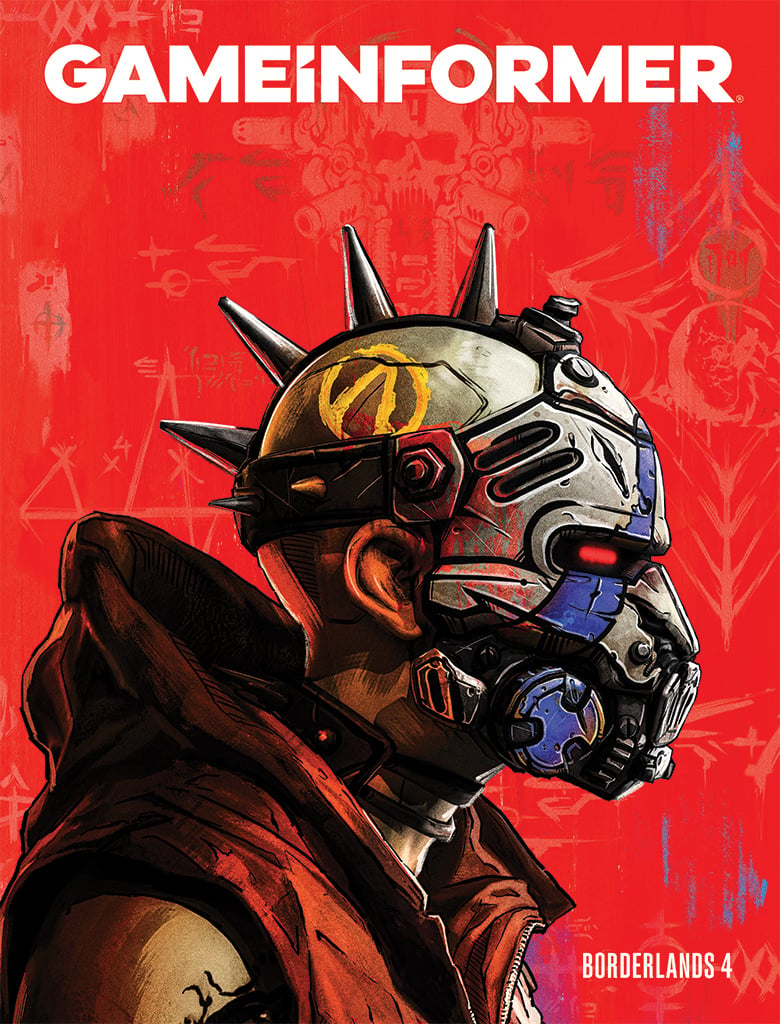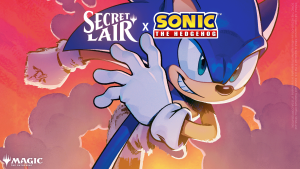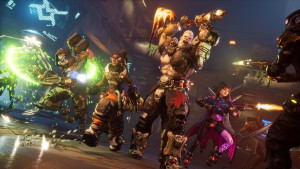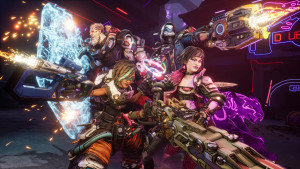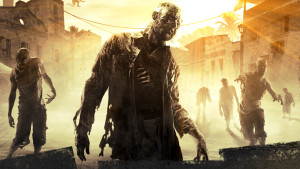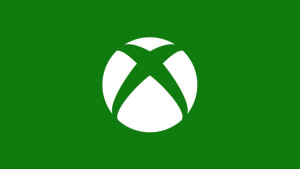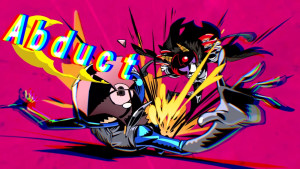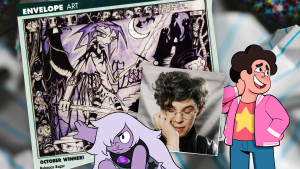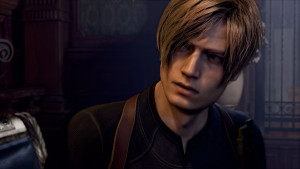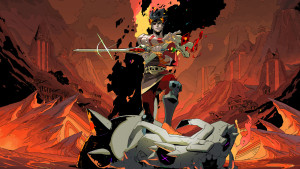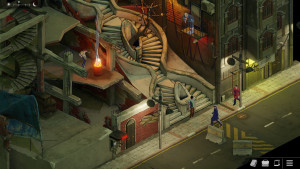Last chance to get your Borderlands 4 issue when ordered by July 1st. Subscribe Now!
What A Book On Tennis Taught Me About Fighting Games
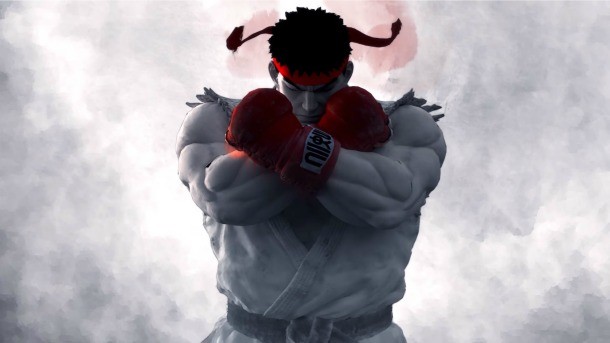
The combo isn’t all that complicated. It goes like this: As Ibuki in Street Fighter V, you hold forward while pressing the heavy kick button to launch the opponent into the air, hold back and tap the medium punch button and make sure you only land one of the two hits, dash over to the other side by doing a quarter-circle and press the light kick button, then perform a Raida by doing another half-circle backward and press the light punch button.
It sounds intricate, but it’s a lot smoother in practice. The whole thing happens in about three seconds. It’s four button presses and three simple motions, and yet I’ve been practicing it for over an hour. My goal is to get it down well enough that I can do it three times in a row. It’s one in the morning, and I can’t do it. I would probably do better if I just went to sleep. But I can’t do that until I get this combo.
I look at the input display on the right side of the screen and see what I’m doing wrong. “You’re not actually doing the entire quarter circle,” I tell myself. “You let your fingers off too early. How are you this bad at this game?” I practice the combo for another half-hour, and then go to bed, defeated.
The Process of Judgement
“[T]he process of judgement often feeds on and extends itself until a strong negative self-image has formed. One begins believing that he is not a good tennis player and then acts this role, never allowing himself anything but glimpses of his true capabilities.” — Timothy Gallwey, The Inner Game of Tennis
I first hear of The Inner Game of Tennis when I attend the Evolution Championship Series, a fighting-game tournament, back in July. I was outside the venue waiting for a shuttle to take me to my hotel when I overhear two people talking about how they did. Eventually I cut in, talking to them about which Street Fighter character we all played and how we did at the tournament (I didn’t enter).
Eventually, one of them brings up the book. The Inner Game of Tennis is ostensibly a guide to getting better at the sport, but provides almost no practical lessons about how you should swing your racket or move your feet on the court. Instead, it offers a guide to achieving the mentality necessary to improve at anything — tennis is only the medium author Timothy Gallwey knows best.
A new mindset for learning feels like exactly what I need. I love fighting games, but I’m no pro. I prefer to practice combos in training mode than play against people. But usually, the more I practice, the more I realize I can’t pull combos off as consistently as I like, and whenever I go to implement them against real people, I trip up and forget everything.
Now, I feel like I’m tripping over basic motions. I get the combo right the first few times, then start whiffing simple parts. I get upset at going off-track, and then never manage to get back on. This leads to hours of frustrating attempts to do a simple combo then giving up, or finally cracking it and feeling like the last race horse has finally crossed the finish line.
So maybe what I need is less practice and more reading. I buy the book for the flight home and read half of it in an hour.

The Inner Game
“There are two games involved in tennis: one the outer game played against the obstacles presented by an external opponent and played for one or more external prizes; the other, the Inner Game, played against internal, mental, and emotional obstacles for the reward of knowledge and expression of one’s true potential.” — Gallwey, The Inner Game of Tennis
The Inner Game, as Gallwey describes it, sounds a lot like the struggle between the id and the ego. He renames these two conflicting forces of the mind “Self 1” and “Self 2.” Self 1 is the voice in your head, telling you what you need to be doing at all times and processing information as it comes in. Self 2 is your body, performing motions and learning the muscle memory required to play tennis (or fighting games) without Self 1 having to tell it anything. Self 1 doesn’t want to do anything without thinking. Self 2 can only do, not think.
Gallwey’s first lesson in The Inner Game of Tennis is to enable Self 2 and stymie Self 1. Self 1 is too prone to judgements about performance, which leads to evaluations. Although most of us tend to learn many practical skills by being told what we should and shouldn’t do, when it comes to a sport like tennis, evaluating each and every shot is a bad idea simply because we can’t do it without eventually making these evaluations about ourselves. Instead, we need Self 1 and its evaluations to stay quiet so we can play our game with more remove, leading to calmer, more natural play.
Focused Attack
“It is the oldest and more natural way of learning – simply a method of forgetting the unnatural ways of learning that we have accumulated. Why is it so easy for a child to pick up a foreign language? Primarily because he hasn’t learned how to interfere with his own natural, untaught learning process. The Inner Game way of learning is a return toward this childlike way.” — Gallwey, The Inner Game of Tennis
My first practice session after reading half of The Inner Game of Tennis, I’m more aware of my Self 1, but I can’t seem to stop thinking and evaluating myself. Every time I get the combo wrong, I think about how I can fix the timing or controller errors I’m having.
This time, I’m playing The King of Fighters XIV, and after a few matches online I can’t help but dive back into a combo in trial mode. And I still end up spending longer than I’d hoped working on a single combo. In trial mode, you only have to do the combo once. But I doubled back on a combo after nailing it early on. It felt too easy. I hadn’t actually learned how to do it, so I tried it a few more times to make sure.
The book had given me a tip on how to focus: Occupy Self 1 by having it “evaluate” a minor detail; in tennis, he recommends focusing on the ball at all times. But I’m not sure what to focus on looking at my screen, and when I start thinking about Joe Higashi’s armbands I’m not sure I’m focusing correctly, and I go back to self-analyzing. I end up spending another 20 frustrating minutes with it before giving up, all because Self 1 kept telling me I couldn't stop until I’d done it the way it wanted me to.

A Reason To Fight
“[Y]ou are not your backhand any more than a parent is his child. If a mother identifies with every fall of her child and takes personal pride in its every success, her self-image will be as unstable as her child’s balance. She finds stability when she realizes that she is not her child, and watches it with love and interest – but as a separate being.” — Gallwey, The Inner Game of Tennis
For a long time, I was obsessed with my Dota 2 stats. I wanted to have as high a win percentage as possible, get the highest kill-death ratio in every match. I wanted to increase my matchmaking rank. Every time I failed to live up to this ideal version of me I became reticent about playing. I wasn’t actively thinking about improving my performance, but rather the numbers tied to it. They were the only visible measure of skill, so they were all that mattered. If losing meant lowering the numbers, why would I want to play? I became focused on everything but the actual game itself. I eventually got over this fear, funnily enough, after an enormous losing streak. My record was shot, so what did it matter if I kept playing?
I haven’t reached this point in fighting games. I don’t want to lose at them. I have fun playing them, and when I play with friends I’m okay with losing round after round. But whenever there’s something at stake, whether it’s ranking points or the satisfaction of not losing to someone who uses some silly or off-the-wall strategy, the only thing I care about are the results of what I do, not the process.
After finishing the book, I examine the reasons I play competitive games in the first place. I’m shy about playing with others, often because I’m afraid of losing. And recently, as my career as a games critic developed, that fear gained a new wrinkle; I’ve been playing and writing about fighting games for years – why am I not better at them? Is my expertise on the genre in question when I lose? In my case, I had more of a reason for not wanting to test myself. If I can’t win at fighting games, what kind of expert am I?
Ego Death
“When you try hard to hit the ball correctly, and it goes well, you get a certain kind of ego satisfaction. You feel that you are in control, that you are master of the situation . . . If a person is out on the court mainly to satisfy the desires and doubts of ego, it is likely that in spite of the lesser results, he will choose to let Self 1 play the major role.” — Gallwey, The Inner Game of Tennis
A few days later I’m in the midst of playing The King of Fighters XIV for review, and after losing three straight rounds to a player who’s clearly better than me, I stop and think. Do I still want to play against him? I’ll probably just keep losing at this rate. Then I think about why I’m playing this game (besides work, obviously). I want to continue to experience this game. Its systems are fun and I like interacting with them. This player is offering more chances to explore those systems, and possibly even learn something from him.
So I pick up my arcade stick and play him again. I lose two more rounds. But the last game, I manage to defeat one of his three characters. It’s the best I’ve done against him, and even though I lost, I feel great.
“Thus, for the player of the Inner Game, it is the moment-by-moment effort to let go and to stay centered in the here-and-now action which offers the real winning and losing, and this game never ends.” — Gallwey, The Inner Game of Tennis
Here was a visible improvement, something that happened without me really actively thinking about it. In the moments where I saw my chance to finally leap over the hurdle of beating a single one of his characters, I wasn’t thinking about my self-doubt. I was focusing only on my opponent’s character, reacting and anticipating its actions. I had achieved focus. And I enjoyed myself playing a fighting game more than I had in a long time.
